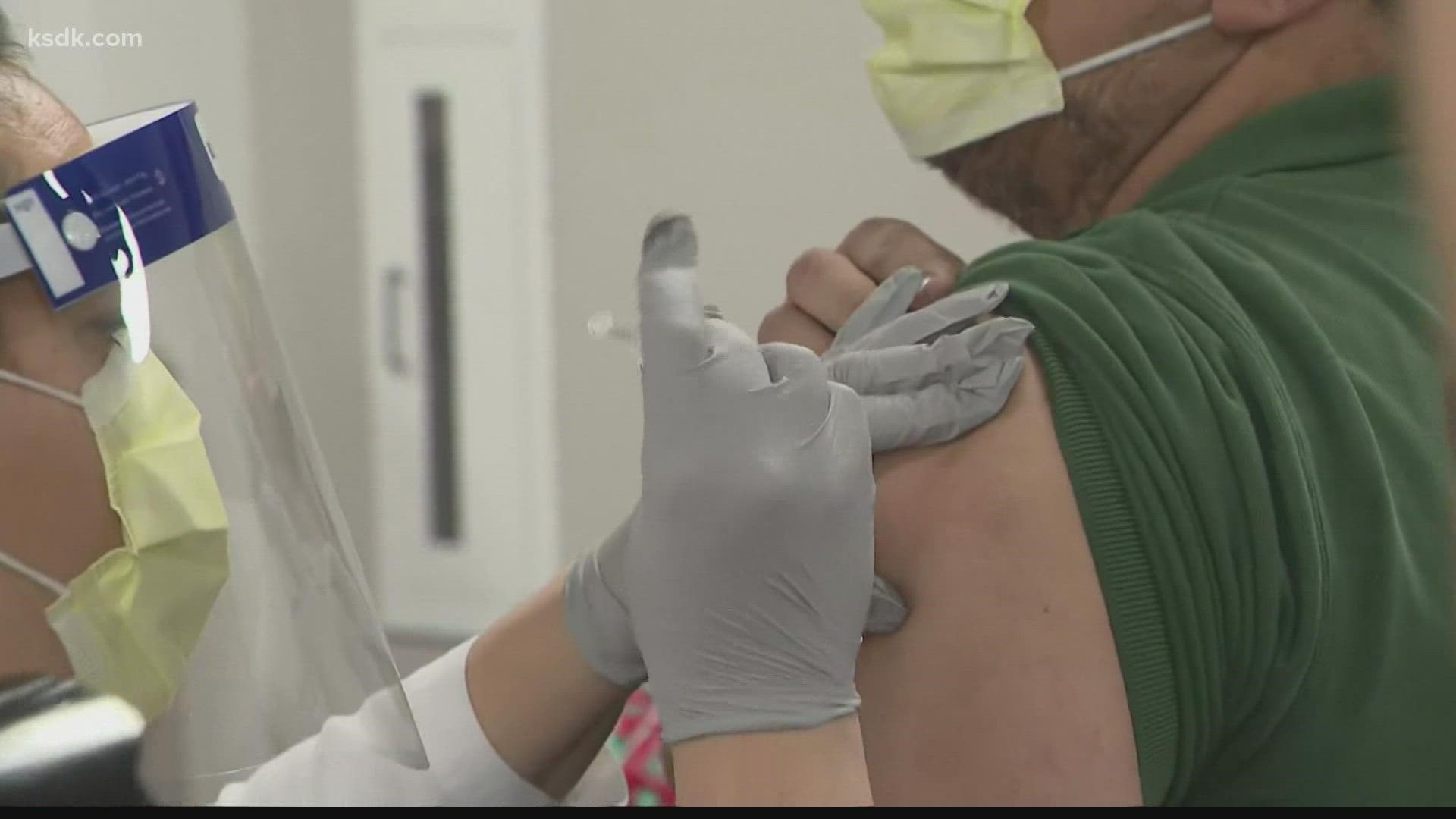ST. LOUIS — Doctors and public health officials have said overcoming vaccine hesitancy is key to ending the pandemic.
Here in St. Louis, it's been eight months since the first COVID-19 vaccines rolled out, but many people still remain unvaccinated.
"A person can make that decision individually, whether they want it or not," says resident Linton Lovelock.
Lovelock lives in Old North St. Louis, one of the top three areas in the city that has low vaccination rates. The 45-year-old battled the virus last December.
Thankfully, Lovelock has since recovered, but he's yet to get a shot protecting him from getting ill again.
"I don't even get the flu shot, so for me, I really haven't gotten sick," Lovelock says.
"This has been a topic of discussion for the last several months," said Dr. Frederick Echols, Acting Director of St. Louis City Department Of Health. The city's interim health director admits convincing more people, especially African Americans, to get a covid vaccine has not been easy. He adds, "Getting vaccinated is a way to help preserve their life in the event they are exposed to SARS-CoV-2 and they get infected and develop COVID-19 disease."
According to a recent poll, about 35% of Black Americans said that they don't plan to get the vaccine, citing fears about safety. One concern is that the vaccines are so new, adding to a trust factor.
Dr. Echols states, "There are a lot of situations that have created the levels of distrust that exists between the community and government and hospital system."
In 1932, the U.S. Public Health Service, working with the Tuskegee Institute, conducted a study to record the natural history of Syphilis. A majority of the Black men involved had the disease. Their consent was never collected. Researchers told the men they were being treated for "bad blood." By 1943, Penicillin was the widely available treatment for Syphilis, but the participants in the study were never offered treatment.
According to Dr. Kendra Holmes with Affinia Healthcare, "How we build that trust is by building trustworthy medical systems." Holmes is Senior Vice-President and Chief Operating Officer. In January, the non-profit community health center was one of the first to administer COVID vaccines in the city.
"It's very serious. Unfortunately, because where we're seeing those low rates of vaccination, we're seeing the high rates of COVID infection," Holmes adds.
Currently, 54% of St. Louis city residents have received their first dose of a COVID vaccine. Nearly 48% are fully vaccinated. In st. Louis county, about 58% of residents have received one dose and almost 42% are fully vaccinated.
The remaining population, like Anastasia Holden still have their reasons for not being vaccinated. For Holden, it's simple. "I don't really want to put that in my body."
"The hesitancy is real and justifiable. So we need to meet people where they are," states St. Louis County Councilwoman Shalonda Webb.
Webb says among other things, that means the city and county's mobile clinics must keep rolling to parks, youth rallies, and other community events in order for more people to keep rolling up their sleeves.
"Until it becomes personal for people, until they can touch a person or may not be able to touch that person anymore due to a death of COVID, that's when it connects with us. That's when it's real to them," The councilwoman says.
To Dr. Echols, "Every dose counts. Every life matters."

